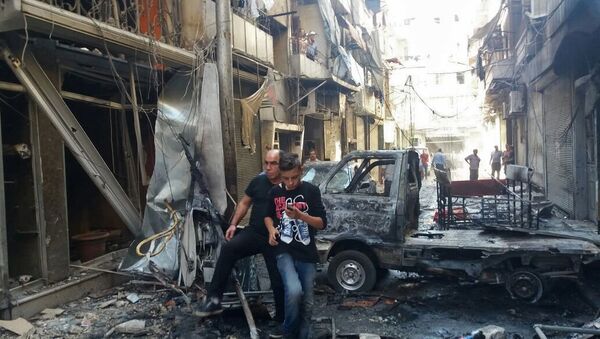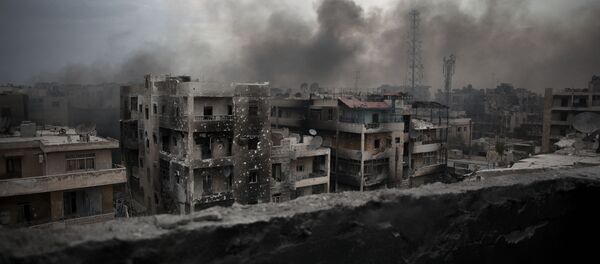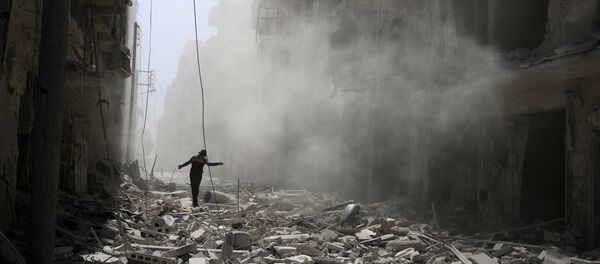The British Ambassador to the United Nations delivered a blistering speech during Saturday’s Security Council meeting condemning Russian airstrikes in Aleppo saying that Moscow’s claims to wanting a lasting peace in Syria were a sham before walking out of the meeting.
Matthew Rycroft’s grandstanding act, modeled after US Ambassador to the United Nations Samantha Power’s orchestrated walk-out one week earlier, shows the growing divide between Russia and Western powers on the appropriate manner and method to deal with the crisis in Syria that has left over 400,000 dead since the war began.
Speaking to his Russian counterpart Vitaly Churkin, Rycroft said that Moscow’s support of Syria’s offensive against the Al-Nusra Front terror group “show just how hollow Russia’s commitment to the political process is” calling Russian diplomacy nothing more than a "sham."
"Instead of investing energy in peace and diplomacy, you have instead supported, facilitated and cooperated with the Syrian regime to retake and destroy any areas standing against Assad," said Rycroft before the Security Council. "Killing off, literally, those who want a moderate, peaceful and pluralistic future."
Unfortunately, the Western-backed "moderate" and "peaceful" rebels in Syria include groups such as Ahrar al-Sham which have long been in league with al-Nusra Front (Syria’s al-Qaeda affiliate) in its fight against the Assad regime. More troubling, an offshoot of the Daesh (ISIS) terror network, Jund al-Aqsa was absorbed by al-Nusra Front on Sunday who signed a new cooperation agreement with the rebels on Monday to account for the incorporation of the Daesh (ISIS) offshoot in the collective fight.
The three groups are now part of the umbrella group – The Army of Conquest – which stands at the vanguard of the fight against the Syrian government of Bashar al-Assad with the group single-handedly pulling off a surprising victory by breaking the siege in September until the Syrian government managed to push back the extremists and re-impose the siege.
Russia has long maintained that the conflict in Syria is much more complicated than it has been presented by the West due to frequently changing allegiances on the ground which has led Moscow to advocate for striking out against Daesh (ISIS) and al-Nusra Front (al-Qaeda) before dealing with a transition of the Assad government to prevent an intervention on behalf of even worse terror groups.
The question remains whether the West will change their posture towards Russia and the Syrian Army based on Monday’s development with the "moderate" and "peaceful" rebels literally intertwined with factions of Daesh (ISIS) and al-Qaeda after the Jund al-Aqsa agreement.





